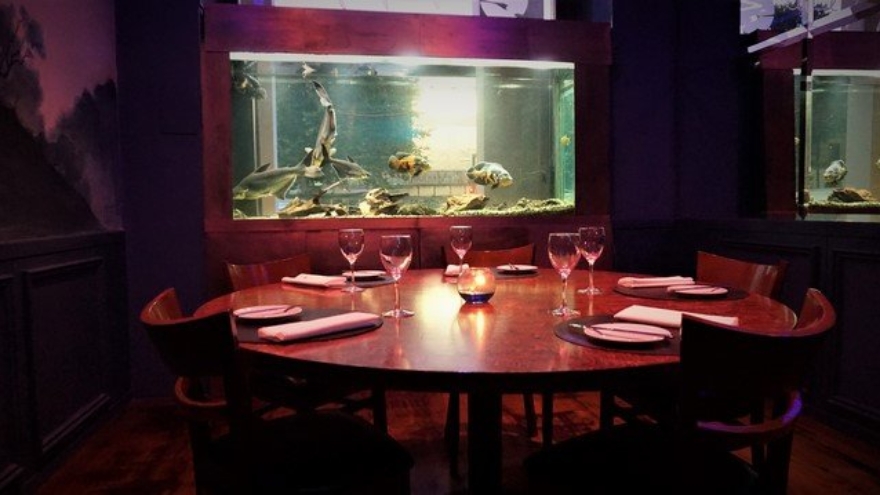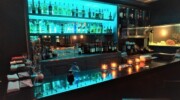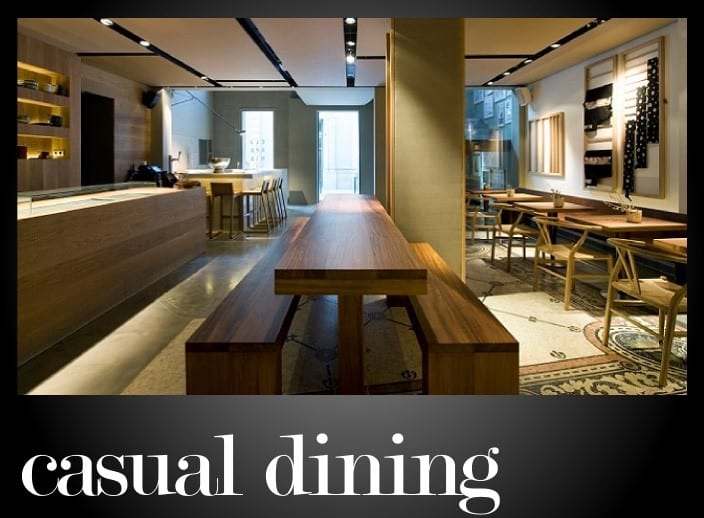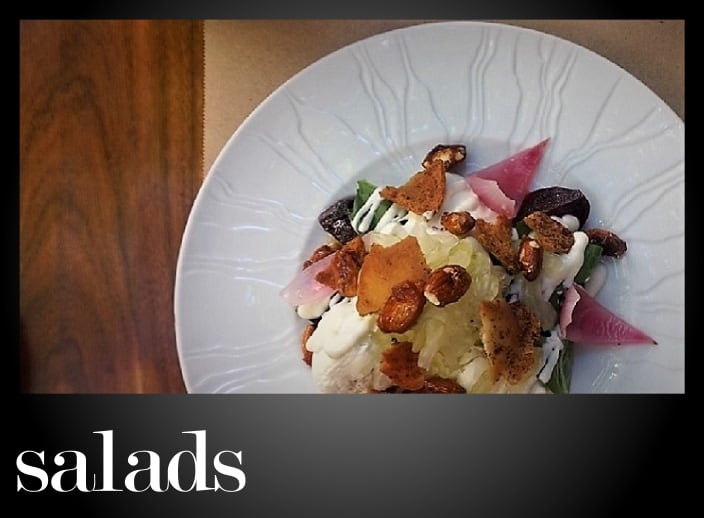Azul Profundo
Click map markers to see address, phone number and hours of operation for each location
In a Nutshell
Recently remodeled. One of only a handful of restaurants in Buenos Aires specializing in seafood. Updated menu emphasizes sushi. Nice decor. Good service.
Read the full review
My stance on seafood is that typically, the less you do to it, the better. When something goes wrong with seafood in a dish, it’s usually because it’s overcooked or the chef overthought the creation of the dish and masked the flavor of the primary ingredient.
And so it was with the meal at Azul Profundo on my recent visit.
Let me set the stage. Azul Profundo has four locations in the region and has been serving seafood for two decades. As the name implies (which translates to “Deep Blue” in English), the restaurant’s emphasis is on seafood. In city where most every other restaurant is emphasizing beef or pasta, that’s unique. And because Argentina exports most its quality seafood harvest, finding a high-quality seafood dish in a restaurant is near-impossible.
Locals and consumer reviews have mostly had favorable things to say about Azul Profundo and my review of the restaurant was long overdue. A recent remodel and revamping of the menu created the perfect opportunity to give the menu a try.
It was early in the evening, about 8 p.m., when we found ourselves at the front door of the restaurant, sort of wondering whether it was open yet. The pretty hostess was walking in the front door as we were milling around out front. She confirmed it was just opening at 8 p.m.so we volunteered to the be first patrons of the night.
It’s only been a few weeks since the completion of the remodel, so the paint was fresh. My companion, a resident ex-pat from Louisiana, assured me that there was no significant change in the décor other than the installation of some modern lighting. The restaurant is dimly lit. There’s some decorative lighting hanging above most the tables and booths and a limited number of overhead spots barely adding to the illumination in the room. It was adequate. But if I were remodeling I would have placed a few more spots directed at the tables. We, in fact, chose the one booth that had a spot directed at one place setting so that I could attempt to get some adequate photos.
The restaurant has a bar area in the front, and a corridor lined with booths connecting the bar in the front with a large single dining room at the rear of the restaurant.
When we arrived, the music was a pleasant, mundane mix of foreign, English pop. By the time we had left a couple of hours later, the front bar was full of people, enjoying cocktails and appetizers, and a DJ was cranking out dance-beat music at a much higher volume. It was so loud, in fact, that it made carrying on a conversation at the table in the dining room somewhat difficult. I note, however, that we were in the first booth in the corridor going to the dining room. I do not think that the volume level would likely have been an issue in the main dining room at the rear of the restaurant.
The menu was recently remodeled, as well. The restaurant, although clearly not a Japanese themed restaurant, is now emphasizing fresh, crudo preparations of fish, primarily in the form of sushi and tiraditos (a fresh-fish preparation in Nikkei cuisine).
In fact, about eighty percent of the menu is dedicated to these types of dishes. There are, perhaps, about six hot appetizers, and possibly another six hot main-course dishes.
We elected to start with two fried appetizers, fried calamari and fried spring rolls.
The dishes arrived within minutes of placing the order. But, we were the only patrons in the restaurant at the time we ordered so the service may not be indicative of what you’d experience if the restaurant were full and busy.
The appetizers were both served in shallow bowls and beautifully garnished. The calamari were accompanied by a creamy sauce. Fried calamari are a very common and popular item on restaurant menus in Buenos Aires (even those that serve no other seafood). They are commonly called “rabas”, which, I believe, is a term unique to Argentina. Execution of rabas at most restaurants is horrible. Calamari, unless perfectly prepared, can be tough and chewy, and often, the breading is boring and tasteless. The herbed-breading on the calamari at Azul Profundo was crisp and delicious and the calamari was tender, not the least bit chewy.
The fried spring-rolls, served with light, fresh salsa, were crisp, and in fact, better executed than at most Japanese restaurants in the city.
For the main course, my buddy from Louisiana ordered an assortment of sushi. He’d had the sushi before and said it was the best in the city. I sampled a piece or two and, in fact, the fish was fresh and tasty, and the rice in the sushi rolls was perfectly seasoned. It was beautifully plated. I would concur that the sushi is as good as at nearby Sushi Club (although not as creative) and at my favorite Japanese restaurant, just a few blocks away, Irifune.
I had a black rice dish with octopus, mussels, and shrimp. I regret to say that the execution of this dish fell short of expectations. The flavor of the rice was a bit murky and all the seafood components were slightly overcooked. The dish was acceptable, but certainly not something I would order again.
We opted to skip the desserts on this outing, but I’ll update the post with comments about desserts within the next couple of months, as I intend to return.
Despite the lack of perfection on the black rice dish, the meal, as a whole, was a success. The ambiance was pleasant (save the high volume of the music at our booth) and the service near flawless.
Finding any restaurant in Buenos Aires that can successfully serve seafood is a rarity. Azul Profundo deserves points for creativity for that fact alone. It’s one of the best options for both sushi and seafood main dishes in the city.
And if you’re looking for a place to enjoy drinks and appetizers, the bar had a good vibe and high energy that make it an excellent choice for achieving that objective too.











